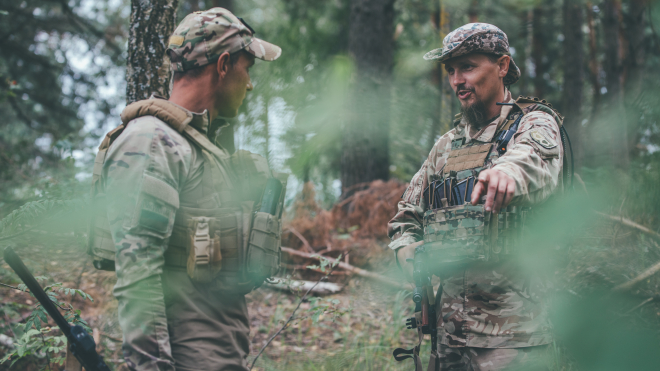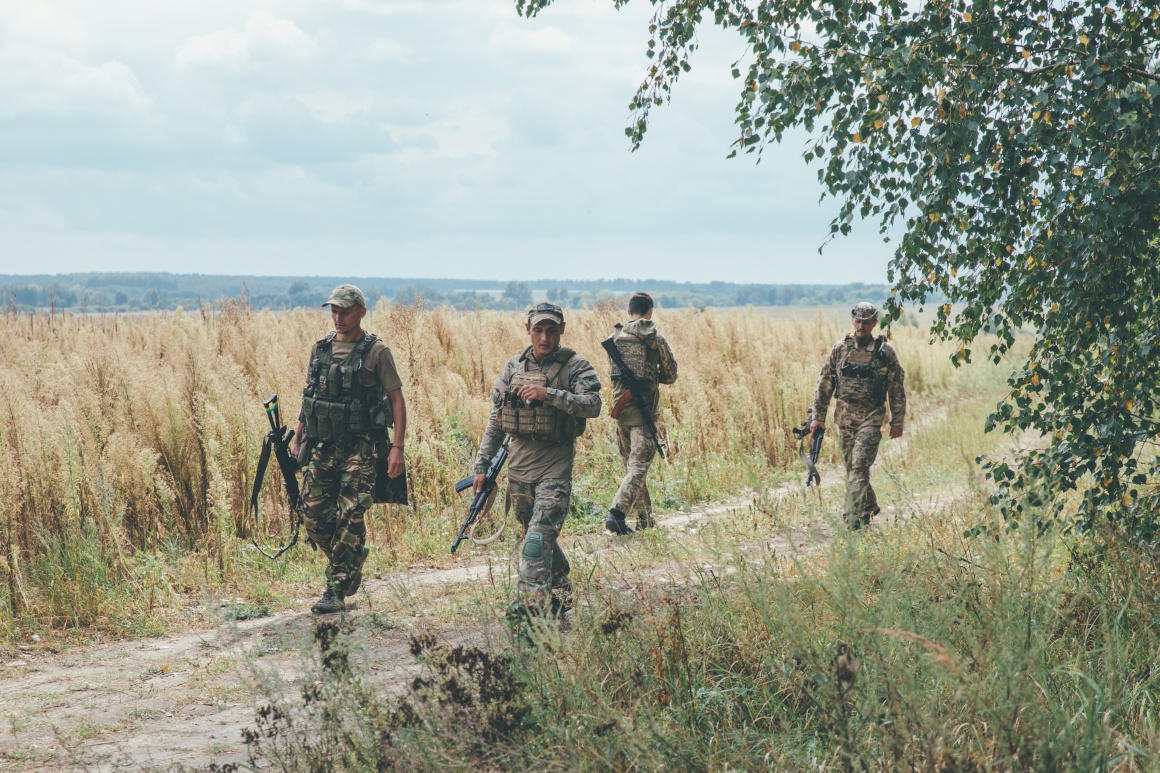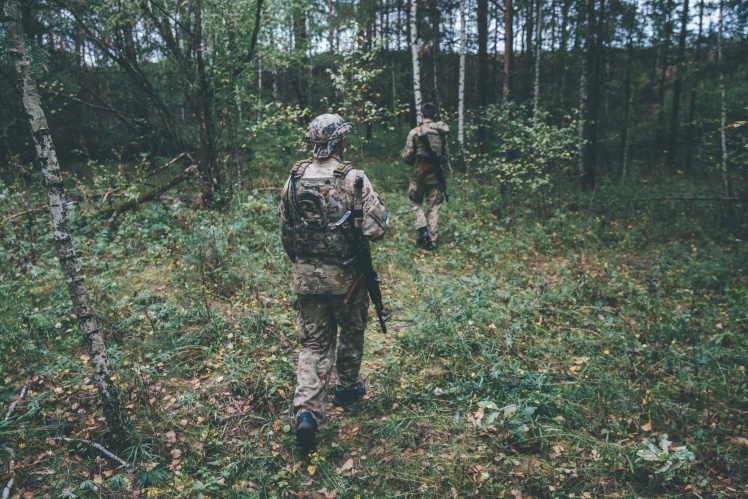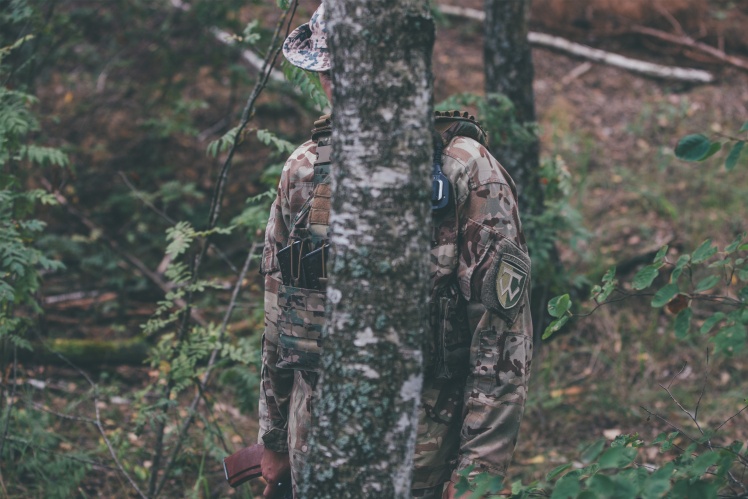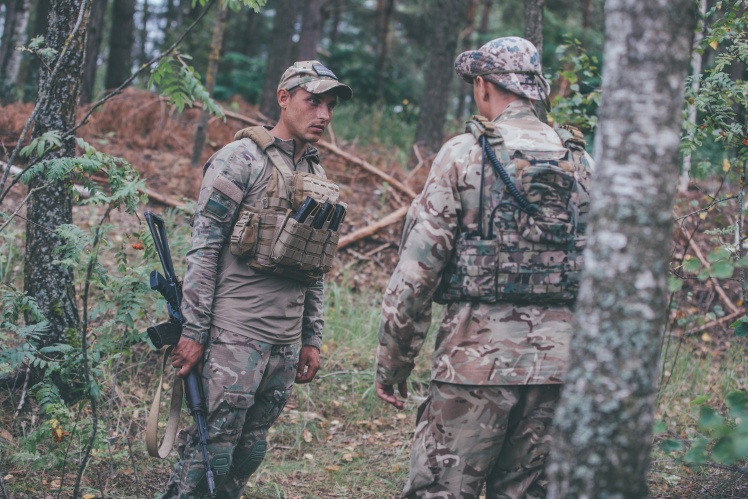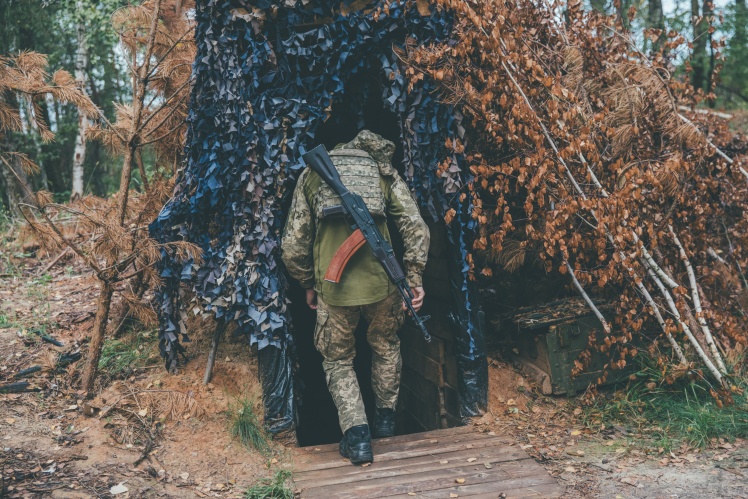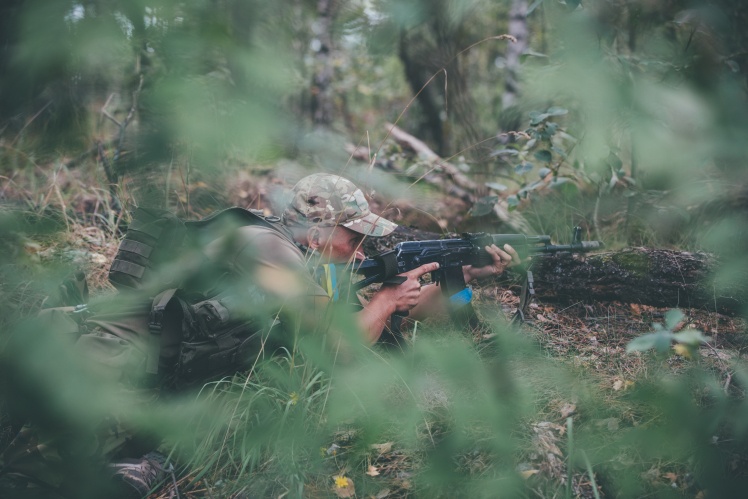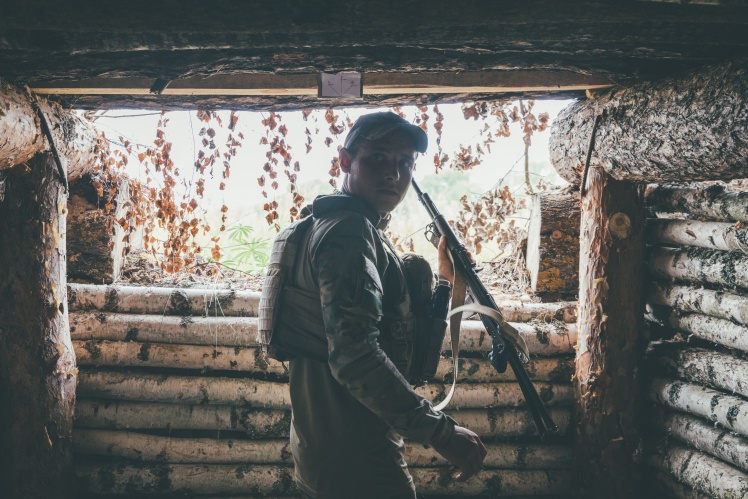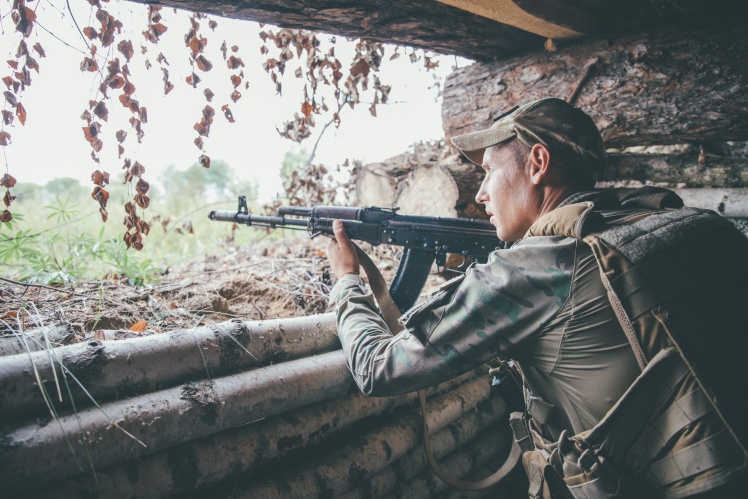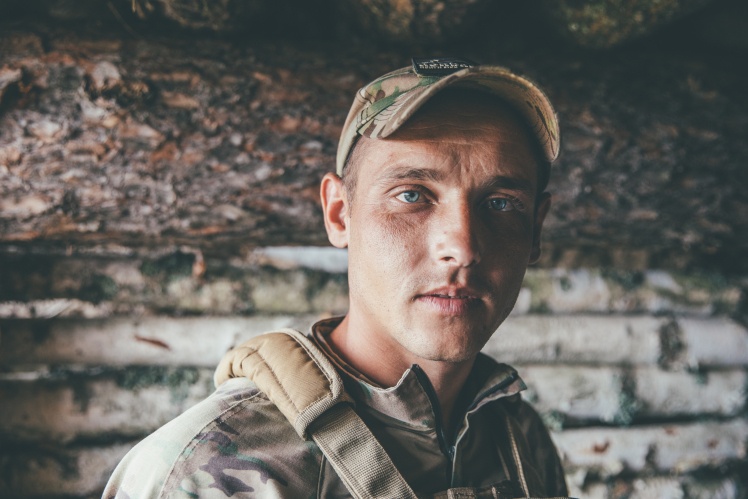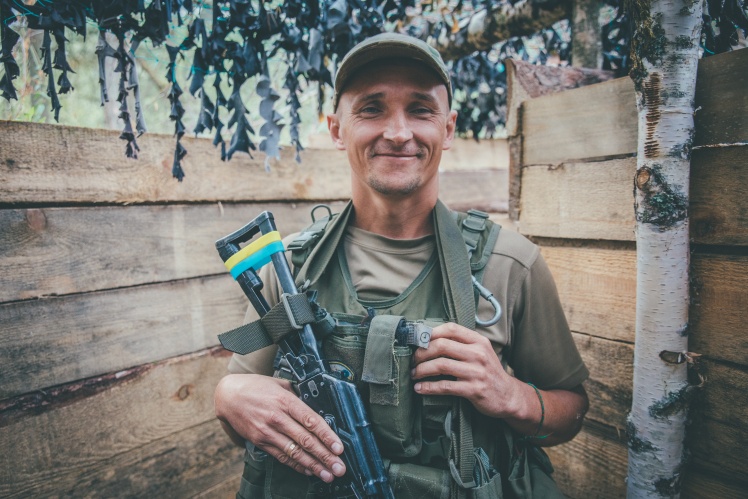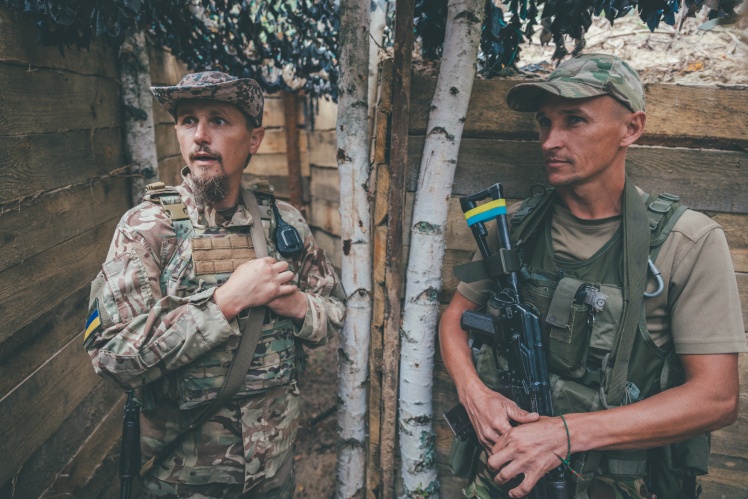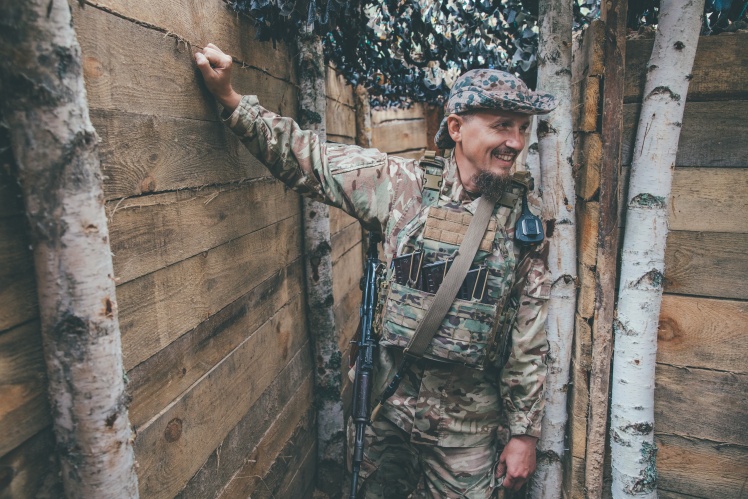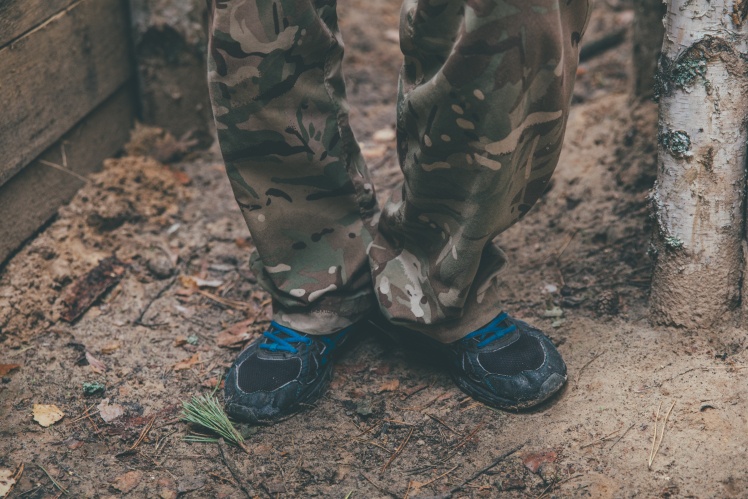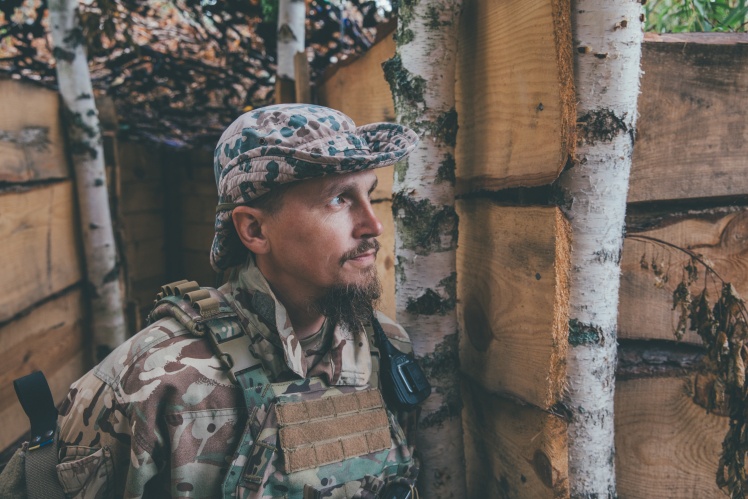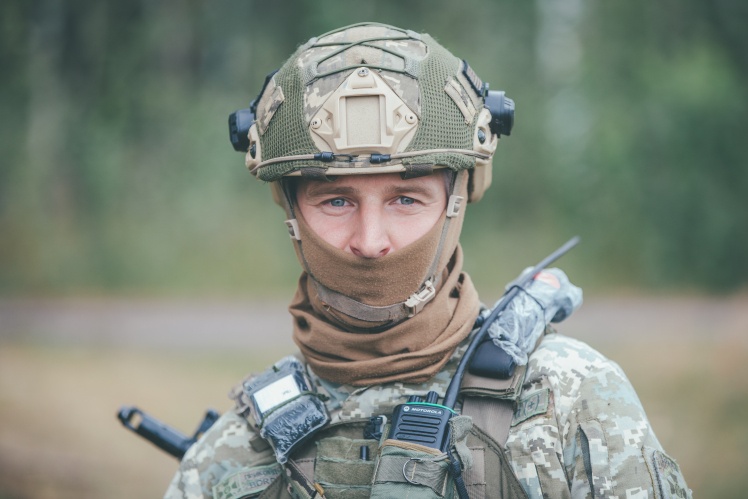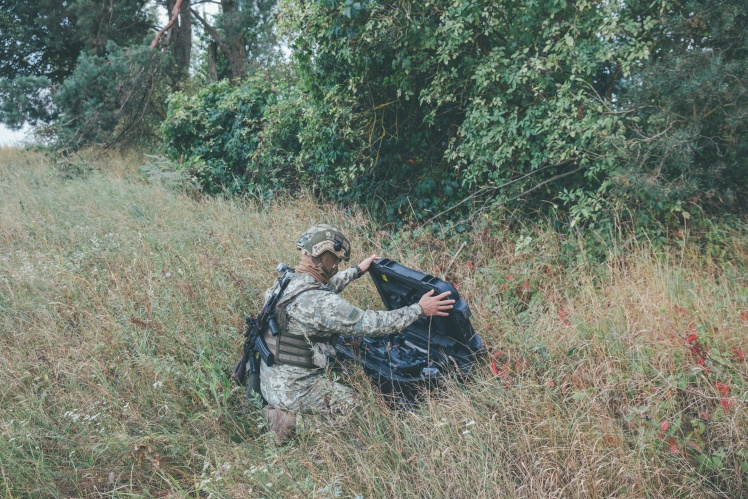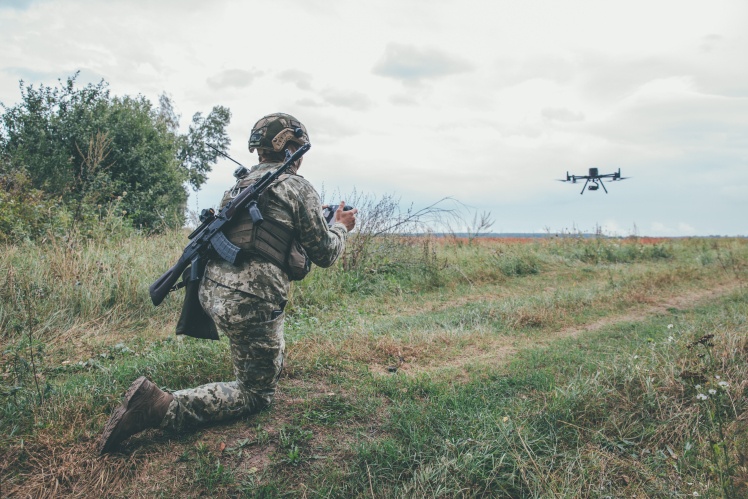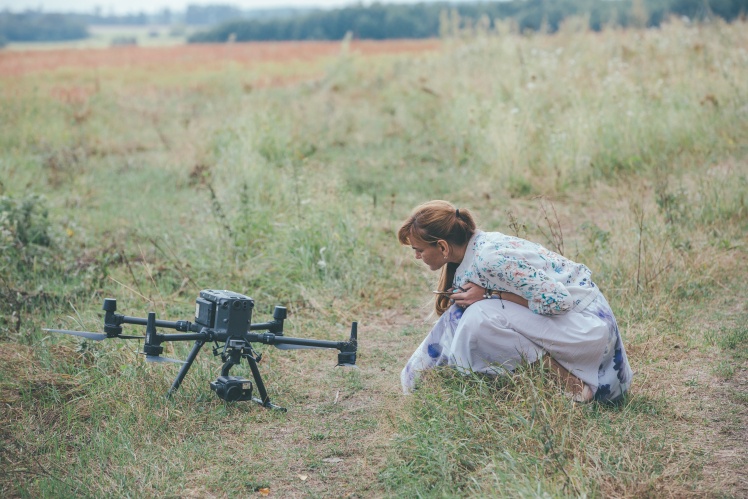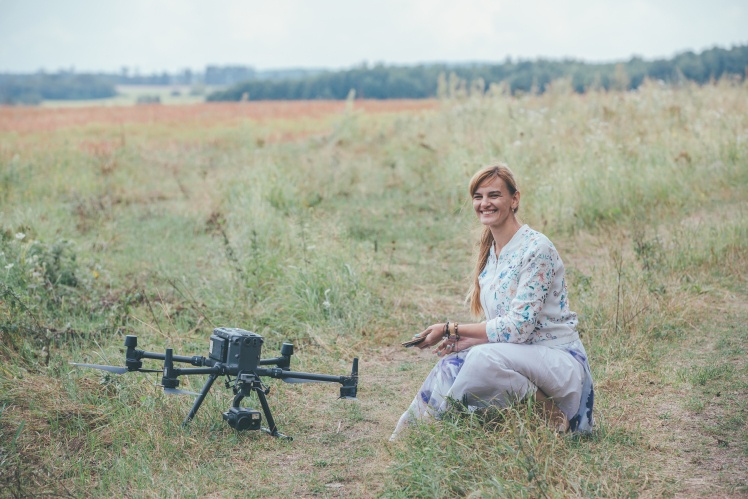"Donʼt specify the name of the place where we are now," the first thing that the border guards, who stopped six saboteurs in July, say at a meeting.
Almost everything is a secret on the border — the names of the soldiers, their positions, the names of the surrounding villages. Any information can be harmful — Russia is constantly shelling border villages with grenade launchers and multiple rocket launchers. In the last month, this has happened more than a hundred times.
In July, four border guards stopped six Russian saboteurs.
Alex Kuzmin / «Babel’»
Border guards Ihor, Oleksiy and Ruslan (from left to right).
Alex Kuzmin / «Babel’»
Three border guards — Ihor, Ruslan and Oleksiy — came to meet with Babel near the Russian border. The fourth — Volodymyr — has his furlough.
Ihor is 35 years old. He and Volodymyr are the same age, both from the Cherkasy region, fought together in the east since the beginning of the war in 2014, then they were released, and in 2022 were mobilized. Ruslan is 42 years old, and 22 of them he served in the border troops. By experience and rank, he was the senior on duty that stopped the saboteurs. Oleksiy is the youngest of them. He is 33, and joined the border guards ten years ago. Like Ruslan, he is from the Chernihiv region. He fought in the east, guarded checkpoints on the border with Belarus, now speaks with a Belarusian accent.
The Ukrainian border in the north is a forest In the summer, there are more saboteurs because it is easier to hide. As the cold season starts, the border guards believe, there will be fewer saboteur groups Oleksiy and Ruslan have been fighting together for ten years, they met in the east of Ukraine in 2014.
Alex Kuzmin / «Babel’»
The positions of border guards in the forest are labyrinths of deep dugouts and stone firing positions. On the one hand, the forest protects them from Russian intelligence, but on the other hand, it is just as easy for saboteurs to hide among the trees and bushes.
“A good border guard has good eyesight and hearing, and turns his neck 360 degrees,” jokes Ruslan. “We do not look at the border, but observe it. If you only look, you will miss something and die.”
Border guards mask the entrance to the dugout. They are dug into the ground to the full height of a person Ruslan remobilized after the start of the full-scale invasion.
Alex Kuzmin / «Babel’»
The closer to the border, the more fortifications of the border guards and the military. The border with Russia and Belarus in the northern direction was fortified throughout the summer. Anti-tank minefields and trenches were destroyed, firing positions and shelters were built. The commander of the United Army Forces Serhiy Nayev has spoken about this more than once recently, when the media discussed the risks of an attack from the north by the PMC “Wagner”, which was transferred to Belarus.
Ruslan believes that the Russians from the north will not pass through all the fortifications with tanks. Instead, in the next six months, they will most likely shell the border villages and send saboteurs there. According to official information, in the summer SRGs tried to cross the Ukrainian border 11 times, and in all cases from the Russian side (in the Chernihiv, Sumy, and Kharkiv regions). SRGs do not enter from the side of Belarus.
“For years, SRGs have been learning how to infiltrate another country in order to commit terrorist attacks, recruit people, mine the territory, and gather information,” says Ruslan. “SRGs can lie in ambush in one place for several days.”
As an example, he mentions the tragedy in the Sumy region. In June 2023, Russian saboteurs shot six foresters. Apparently, the saboteurs spent several days in the ambush. They left their drone over the bodies of the foresters — because of it, the military could not take them away for a day and a half.
The saboteurs, whom Ruslan and his comrades stopped in July, most likely went to collect information about the positions of the Ukrainian military. As Oleksiy says, they [saboteurs] could also set up trip wires, scatter explosives or take someone as prisoner. He was the first to notice the SRG at the border and started shooting at them, wounding two.
The border guards watch the Russian border through special windows — behind them is the Russian border Oleksiy was the first to see six Russian saboteurs. He let them come closer and started shooting. Oleksiy fought with the SRGs three times in the Donetsk region, but he met with saboteurs for the first time in the Chernihiv region. He says that there is the difference — in the east, the battle went on quickly, and here the Russian special forces were active, which fought back for a long time.
Alex Kuzmin / «Babel’»
The saboteurs walked without hiding, in black uniforms with white chevrons. In combat equipment with weapons — machine guns with collimating devices and an LAW tube. They behaved so defiantly, because in the morning the positions of the Ukrainian border guards were shelled from the Russian side with grenade launchers and mortars. Oleksiy thinks that the saboteurs hoped that there would be no one [of Ukrainian soldiers] left alive and that there would be no resistance.
“When I saw them, I let them to come to the distance of 50 meters and started shooting,” recalls Oleksiy. “I shot out two loading cases, fell to the floor, and began to reload the machine gun. I hear the guys [comrades] are covering me up. I got up and opened fire again. Overall, I used four loading cases."
From the Russian border, the SRG was covered with mortars, they fired at Ukrainian positions. Oleksiy injured two saboteurs. Four others picked them up and retreated.
The border guards did not expect that they would receive awards for this battle. They believed that this is because the battle was unusual. Generally, when saboteurs appear on the Ukrainian border, they are covered with mortars, and they retreat. This time, the guys had only machine guns, and the SRG had LAWs and cover from grenade launchers.
Ihor covered Oleksiy while he reloaded the machine gun Ruslan is the senior on duty, he coordinated the actions of his comrades in battle.
Alex Kuzmin / «Babel’»
Ruslan has been a border guard for 22 years. Ruslan has been wearing these shoes for many years, and he is sure that they are his lucky ones He says that luck and the experience they gained in the east helped them fight off the saboteurs that day.
Alex Kuzmin / «Babel’»
Usually, Ukrainian border guards are assisted by aerial scouts. "Asker" is one of them. He raises a drone into the sky over the Chernihiv region several times a day, looks at what is happening on the Russian side, whether equipment, military, or saboteurs are moving. The drone transmits a clear picture to the monitor in a safe place.
"Asker" never saw a group of saboteurs planning to enter Ukraine, but once he found a Russian tank that was rolling near the border. He circled over it for a long time and eventually forced to drive away from the border.
Aerial scout "Asker" covers the border guards from the sky "Asker" started doing aerial reconnaissance two years ago. He says the Russians hunt drone pilots especially actively. Because of this, he hides his face and does not say his name. A drone flies over the border in Chernihiv region several times a day — "Asker" looks for enemy military equipment.
Alex Kuzmin / «Babel’»
What is SRG
SRG (sabotage-reconnaissance group) is a group of military personnel from 6 to 16 people who are part of a special purpose unit. They can blow up bridges, dams, recruit agents, collect information about Ukrainian military positions, equipment and numbers of troops, about how the border, roads and cities are protected. They can mine the territory and take prisoners.
SRGs are trying to cross the Russian-Ukrainian border, but there are no such attempts from the Belarus side. Most often, saboteurs try to break through the border in the Sumy region.
Ukrainian border guards and soldiers stopped Russian saboteurs at the border in Sumy, Chernihiv, and Kharkiv regions. It happened four times in June, four times — in July, three times — in August, according to the official data.
The Russian side is on the monitor.
Alex Kuzmin / «Babel’»
The drone rises so high that it cannot be heard from below. The operator observes the territory of Russia at a great distance from the border.
Alex Kuzmin / «Babel’»
This large border guard drone costs over a million hryvnias and saves lives of the servicemen.
Alex Kuzmin / «Babel’»
Translated from Ukrainian by Ruslana Stoltz.
For "Asker", Oleksiy, Ruslan, Ihor and Volodymyr risk their lives less, support the boys with a donation. You need them to have guns and drones.
